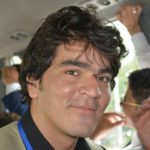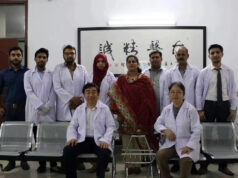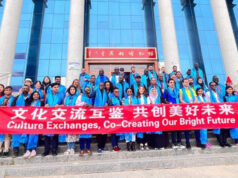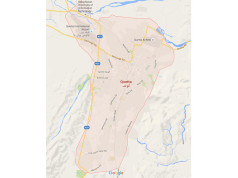In a parliamentary democracy where majority has special privilege to influence policy-making, directly and indirectly, the legislation is more relevant to youth if Pakistan is taken as a case study of that because of its prominent youth bulge that has the largest vote bank to elect overall parliamentarians and can easily coerce to set their prioritized agenda in supreme institutions of the country for actions through active participation in electoral practice.
Empowering about sixty percent of voters politically is one of the means to catalytically challenge the ongoing traditional and obsolete but still practiced trends of such slowly moving society and convince the political culture to be alert of the public demands and choices and adapt it accordingly.
A report by United Nations on ‘youth, political participation and decision-making’ estimates that one-fifth of world population is youth but average age of parliamentarians globally stands at 53, where 1.65 percent is in age of 20s and 11.87 percent in 30s despite knowing the fact that youth are the real agents of change and is being witnessed in various movements of history including that of recent Arab spring; whether that is for socio-economic cause or political power dynamics, youth are on-front because of their natural quality of being progressive and immense energy they bear to dedicate.
The role of youth is now being realized not only globally but also in national affairs of various countries because of their distinct age group and qualities they possess, which can be effective to constructively contribute their potential if appropriately utilized and directed in very right direction. In Pakistan, though some of the non-government organizations have taken multiple initiatives including the formulation of youth policy of all provinces after the eighteenth amendment due to the distinct requirements of provinces but the approach being used is very idealistic and theoretical and pays little attention at the on-ground situation.
All the political parties and politicians will be targeting youth in their election campaign in general elections this year: to grab maximum votes in their favor but that should be prevented from wringing as always has been done by the opportunist sort of shallow slogans, only meant at reaching to the noble houses of people at the cost of neglecting concerns and weakening the institutions furthermore. However, Election Commission of Pakistan, being among the topmost and significant institution of this year especially, should take strong steps to mainstream youth in political process and devise realistic strategy to let the youth use their power of general will in exact and needed sense, so that, such flair is not missed to be accurately allocated.
Certainly, such a huge number of young citizens is not formally strengthened and organized to institutionally advocate their issues and get it on the table for concrete steps to be resolved but constitutional-cum-political right is an opportunity with this largest group to send their desired signals and reflect their free-will to be welcomed by the legislative houses and the executive cabinet after forming a government, youth can themselves form through their votes.
The minds of 50 years cannot be revolutionized nor reframed but of youth can be easily moderated through empowering them
The minds of 50 years old citizens cannot be revolutionized nor reframed or reformed but of youth can be easily moderated through empowering them and socialized with modern approach. It is not only the votes of youth which matters but political participation in other areas like political and social media activism of youth wings of various political parties can be more effective, as not only they are majority voters but are almost majority political supporters, activists and facilitators in election campaigns of various parties, too.
As young people are the key stakeholders in state affairs as per democratic norm of majority and general will and are considered to be one of the most important elements of national power but actually its utility can add such extraordinary force that can push the society on track of peace, progress, development and prosperity and that constructive endeavor on collective front can build a base for upcoming youth at the same time.
Last month, Center for Sustainability, Research and Practice (CSRP), a think-tank based at University of Lahore (UoL) held 1st national youth summit Pakistan with the collaboration of Punjab Government to highlight the role of youth in policymaking. It practically gathered more than 150 potential young participants from every segment of the country to aware them of their obligations and rights through panelists in plenary sessions but that has to be taken beyond capitals to inculcate in the mind of each and every citizen and every single youth has to be given space for such understanding and only then those youngsters will be updated and well-informed to form their choices and play their part for the betterment and progress of the country to truly benefit the people.
It is a way to counter not only extremism but also exploitation of youth through the opportunist agendas and to give weight to the youth power in advocating the policies that influence them through various means and serves as an effectual pressure group against the independent politicians, so that, the policies that should be bound by the public needs and say rationally. There is still sufficient time to practice this initiative for the better turn-out and the outcome in shape of electing legislatures of right choices, as the option is still with the people; either its utility or exploitation but that will remain relevant for the next tenure of 2018 to 2023.
 The writer belongs to Quetta and He is Studying Defence and Strategic Studies at QAU, Islamabad. Area of Interest of the writer includes Politics and Socio-economics developments of Balochistan, South Asian Politics, Non-State Actors, Terrorism and CT strategy, Globalization and Cyberwarfare. Follow him on Twitter @Saddam_Shah98.Email: [email protected]
The writer belongs to Quetta and He is Studying Defence and Strategic Studies at QAU, Islamabad. Area of Interest of the writer includes Politics and Socio-economics developments of Balochistan, South Asian Politics, Non-State Actors, Terrorism and CT strategy, Globalization and Cyberwarfare. Follow him on Twitter @Saddam_Shah98.Email: [email protected]
Disclaimer: Views expressed in this article are those of the author and Balochistan Voices not necessarily agrees with them.
Share your comments!








